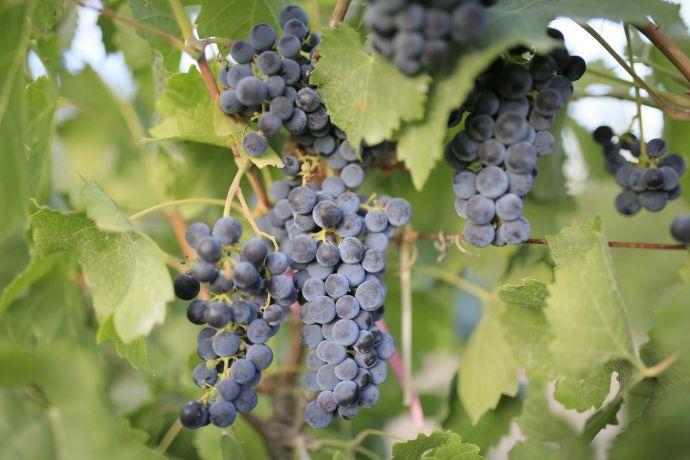BEIJING, July 5 (Xinhua) -- Wineries in the Xinjiang Uygur autonomous region are helping to bring agriculture to the Gobi Desert and boost the local economy.
Yanqi Hui autonomous county, a major wine-producing area, sits on the southern slope of the Tianshan Mountains. The mountains interrupt the eastward flow of humid air that originates as far away as the Atlantic Ocean. By the time it reaches Xinjiang the moisture is reduced considerably, and the mountains' northern slope blocks most of the final remnants, leaving the southern side arid. This creates a friendly environment for grapes.
Despite getting more than 3,600 hours of daylight a year, the dry weather and raging sandstorms have hampered the county's farming industry.
Yet winemakers have spotted potential in the endless desert and installed drip irrigation systems.
"In 20 years, we have transformed the boundless Gobi Desert into a sea of grapes," said Zou Jiyun, CEO of Xinjiang Xiangdu Winery, which was founded in 2002. Its vineyards now cover 2,700 hectares.
"The soil conditions and local weather conditions, including the low rainfall, have kept diseases and pests away from the grapes, thus reducing the use of pesticides," he said.
The vast vineyards have helped conserve the environment, while providing job opportunities and boosting the local economy, Zou said.
"At the peak of production, we employ more than 500 workers a day. Since we started, we've also paid more than 200 million yuan ($30 million) in taxes."
Yanqi began to foster wineries in 1998. In 2009, the wine industry was included in the local government's economic development plan and has been supported by multiple policies.
Qi Hongshen, a manager at Tiansai Vineyards, said the county government began investing heavily in a wine industry park almost 20 years ago that incorporates functions of grape-planting, winemaking and tourism.
"The government has introduced favorable policies for winemakers in terms of acquiring land, water and electricity," she said.
China has a long tradition of consuming alcohol, yet Zou said that as people become more conscious of their health, more will turn to wine for its health benefits. Many already have a growing appreciation of wine culture, he said.
"The Chinese began to make wines thousands of years ago, but for some reason it didn't have the same appeal as other liquors. As people become wealthier and more conscious of the health aspects of the things they consume, the industry is bound to become lucrative," he added.




 A single purchase
A single purchase









